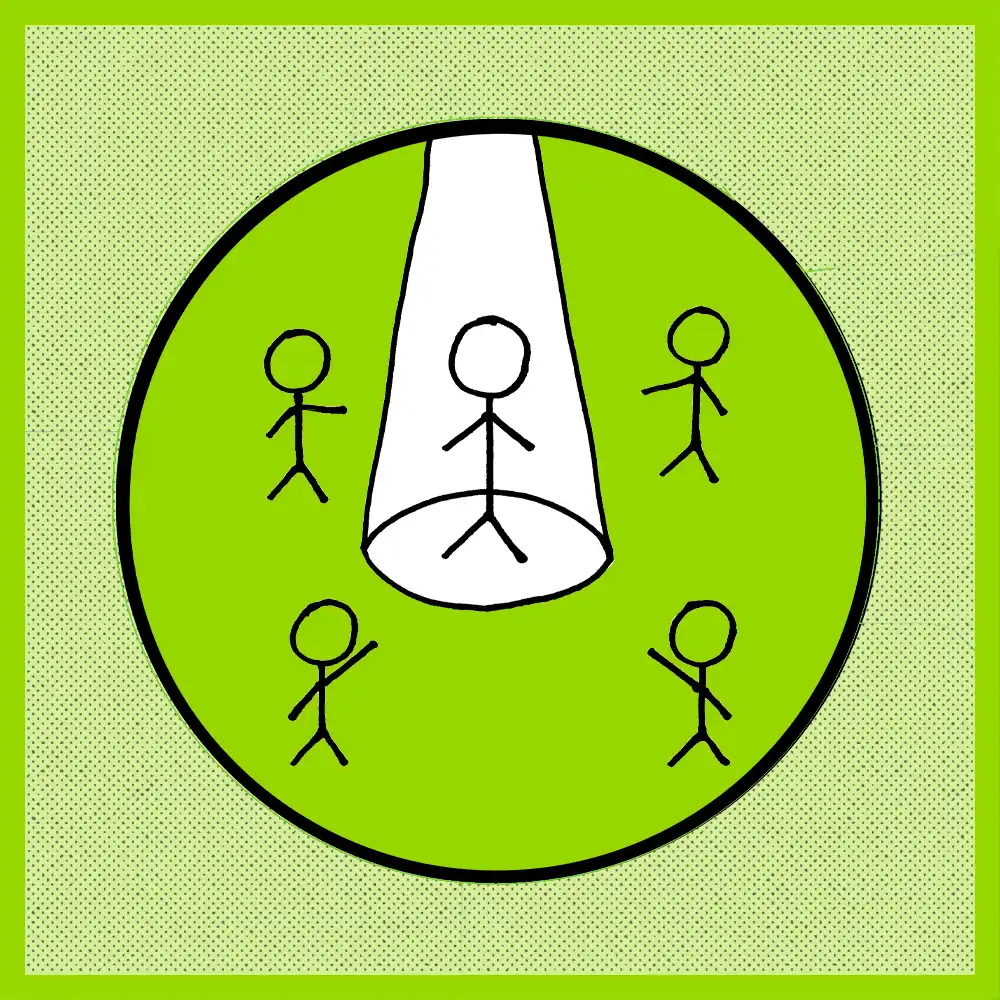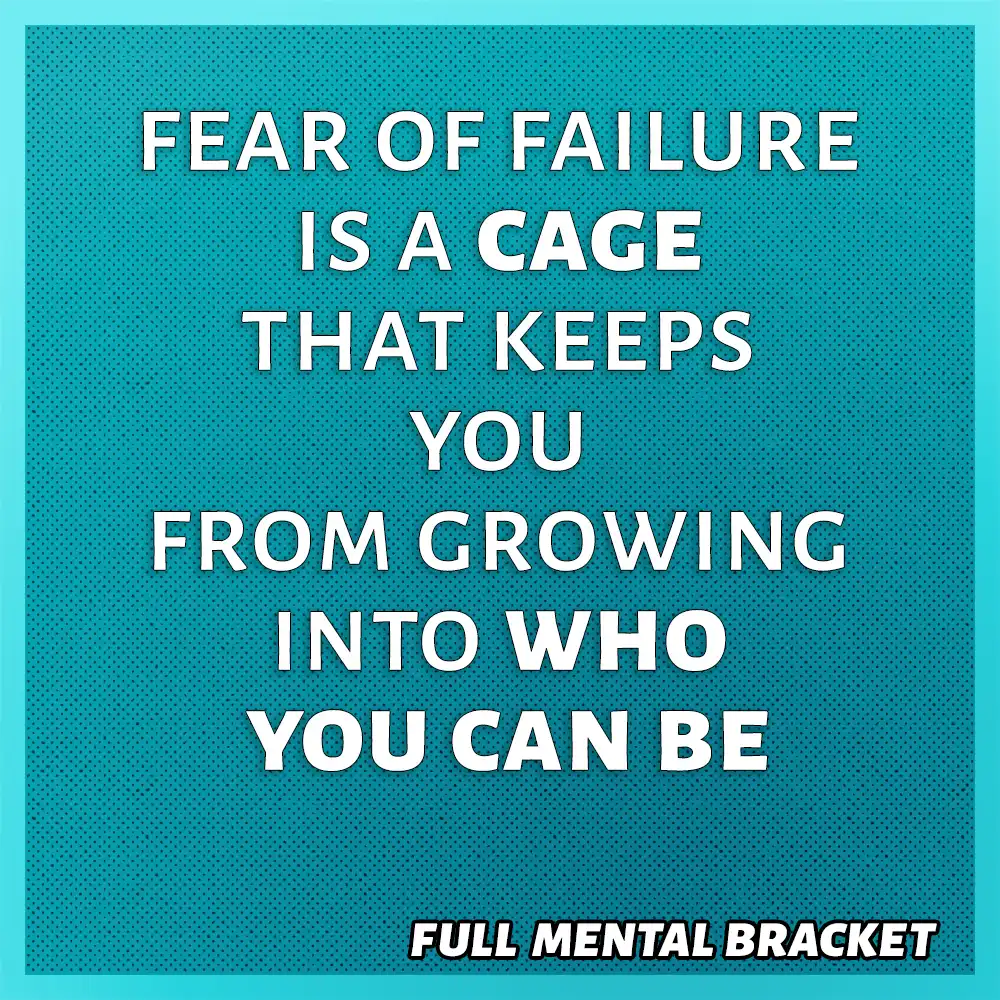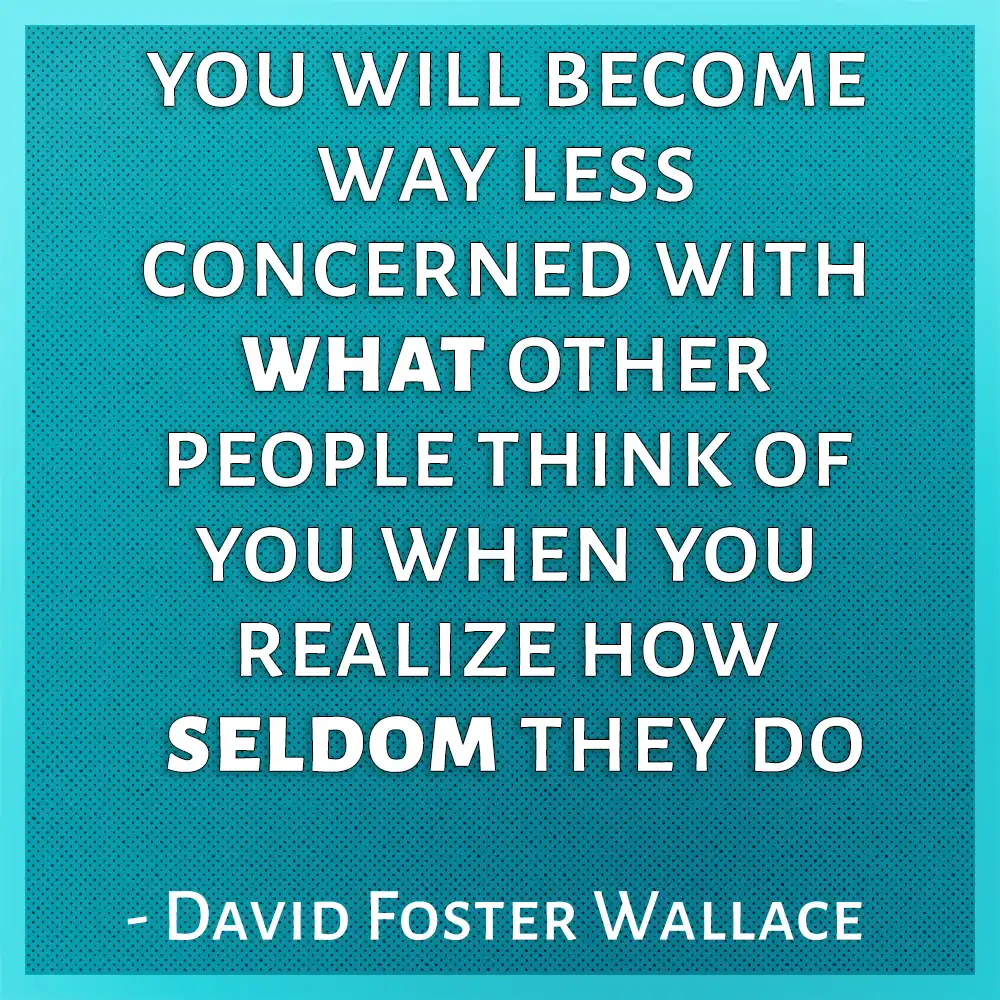/
Spotlight Effect Psychology: Why You Feel Judged and How to Stop It

Have you ever felt like you were under a microscope, with everyone around you scrutinizing your every move? Whether it’s a mispronounced word during a presentation or a wardrobe malfunction at a social gathering, the feeling that everyone is watching can be overwhelming. This phenomenon is known as the spotlight effect, and it’s something we all experience at some point in our lives.
In this post, we’ll explore what the spotlight effect is, why it happens, how it impacts our lives, and most importantly, how to overcome it.
- What Is the Spotlight Effect and Why Does It Happen?
- How the Spotlight Effect Impacts Your Confidence and Growth
- 5 Ways to Overcome the Spotlight Effect and Stop Feeling Self-Conscious
- Perspective Shift: Most People Aren’t Watching You
- Conclusion: Break Free from the Spotlight and Be Your Authentic Self
- Frequently Asked Questions About the Spotlight Effect (FAQ)
- Read Next
What Is the Spotlight Effect and Why Does It Happen?
The spotlight effect is the unconscious assumption that others are paying more attention to us than they actually are. It’s that nagging feeling that everyone is focused on our flaws, mistakes, or embarrassing moments. Psychologists identify this as an egocentric bias, where we view the world through our own lens and assume others are doing the same.
For instance, if you wear an embarrassing t-shirt in public, you might think that everyone is laughing or judging you. In reality, most people are too preoccupied with their own lives to notice or care.
So why do we feel this way? The spotlight effect is a cognitive bias—a mental illusion that distorts our judgments of other people and what they’re thinking.
✅ Our brains are wired to focus on ourselves — making it hard to see accurately from another person’s point of view.
✅ We can’t really ignore what we know. Our deep knowledge of our own struggles and situations distort our estimates of what others notice and think.
✅ This leads to overestimating how much others think about us, often resulting in anxiety and self-doubt.
🎧 Click here to listen to a deeper discussion of this topic
How the Spotlight Effect Impacts Your Confidence and Growth
The spotlight effect can quietly shape how we live:
✅ Avoiding risks: You hesitate to speak up in meetings or try something new for fear of looking foolish.
✅ Self-censorship: You stop expressing yourself fully to avoid judgment.
✅ Negative thinking loop: When you associate failure with public shame, it maks future risks feel scarier.
Imagine having an idea but holding back because you think others might laugh. Over time, these missed moments can affect your confidence and professional growth.
5 Ways to Overcome the Spotlight Effect and Stop Feeling Self-Conscious
1. Embrace a Growth Mindset

Shift your focus from impressing others to improving yourself. Mistakes become learning opportunities. The more you practice this mindset, the easier it becomes to take healthy risks. 💡 Think: “What can I learn from this?” instead of “What will people think?”
2. Seek Support from Your Tribe
Talk to trusted friends or mentors. Chances are, they’ve felt the same way. Not only does this reduce isolation, but it also gives you a reality check:
✅ People are usually thinking about themselves—not your moment of awkwardness.
3. Create Psychological Distance
Ask yourself: “How would I feel if this happened to a friend instead of me?”
By stepping outside of yourself, you can view the situation more objectively and reduce overreaction.
4. Practice Mindfulness
Mindfulness helps you notice your thoughts without judgment.
✅ Deep breathing
✅ Meditation
✅ Grounding techniques
These can reduce the emotional charge behind those anxious feelings and help you stay present.
5. Challenge Your Assumptions
When you feel judged, pause and ask:
✅ Is this really happening—or am I projecting?
✅ What evidence do I have that others are focused on me?
Often, your fear is based on assumption, not reality.
Perspective Shift: Most People Aren’t Watching You
One of the most liberating truths is this: most people are too busy thinking about themselves to think about you. As David Foster Wallace put it:

“You will become way less concerned with what other people think of you when you realize how seldom they do.”
This shift in mindset allows you to stop hiding and start shining.
Conclusion: Break Free from the Spotlight and Be Your Authentic Self
The spotlight effect is a common but deceptive psychological bias. While it can feel like the whole world is watching, the truth is far more forgiving. By recognizing this bias and using tools like perspective shifts, support systems, and mindfulness, you can step out of the imagined spotlight and into a more confident, expressive life.
✅ Let go of the fear—and lean into the challenge
Frequently Asked Questions About the Spotlight Effect (FAQ)
What is the spotlight effect in psychology?
The spotlight effect is a cognitive bias where individuals believe others are paying more attention to their actions, mistakes, or appearance than they actually are.
Is the spotlight effect the same as social anxiety?
Not quite. While both involve fear of judgment, the spotlight effect is a normal psychological tendency that everyone experiences, while social anxiety is a more persistent and clinically recognized condition.
How can I stop feeling like everyone is watching me?
You can overcome the spotlight effect by:
✅ Practicing mindfulness
✅ Adopting a growth mindset
✅ Talking with trusted friends
✅ Reframing your perspective
✅ Challenging your assumptions
Why do we overestimate how much people notice us?
Because our minds are grounded in their own experience, our judgments tend to be inherently egocentric—we’re immersed in our own thoughts and feelings. This makes it easy to project our internal focus outward, assuming others are equally focused on us.
Students of bias may recognize this as a form of the anchoring and adjusting heuristic
Is the spotlight effect common?
Yes, it’s extremely common—especially in embarrassing situations. Recognizing it is the first step to reducing its impact.
Read Next
Ready to learn more? Read our next article:
➡️ Spotlight Effect Examples: How Movies Reveal This Common Mental Trap
Learn how to build connection, improve communication, and grow stronger—together.

Brent Diggs is a generalist with a broad set of interests, experiences, and skills. He is passionate about cognitive bias, social psychology, and all the irrational forces that convince us we are rational. His work has been featured in The Ominous Comma, Mind Over Memphis, and over 1500 product tutorials.
Oh yeah, he’s also the host of the Full Mental Bracket podcast.